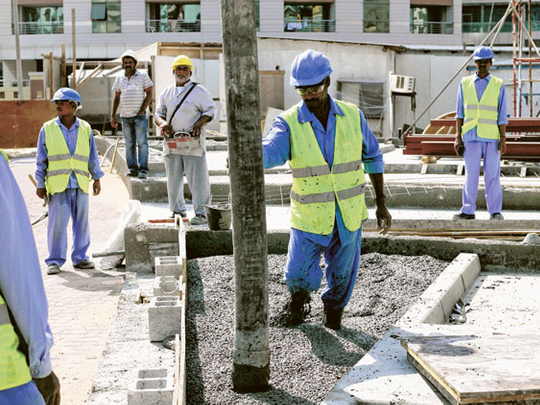
Dubai: Recent political turmoil in some Gulf states and the geopolitical risks emerging from other Middle East and North African (Mena) neighbours are likely to support the strong economic recovery taking shape in the region, said Marios Maratheftis, Head of Research, Europe, Middle East, Africa and Americas, Standard Chartered.
Addressing the 12th Annual Regional Audit Conference in Dubai yesterday, Maratheftis said the Gulf region is at the forefront of the global economic recovery after the Asian emerging markets.
"The socio-political situation in the Gulf is unlikely to slip out of control and adversely impact the growth prospects.
"On the contrary, the increased public spending announced by governments in the region in response to the unrest is likely to boost the economies," he said.
Saudi Arabia, Oman and Bahrain have announced huge public spending on welfare schemes such as employment generation, health services and public housing.
Fiscal boost
While individual governments have announced a significant fiscal boost as development spending, the GCC last month announced a $20 billion (Dh73.45 billion) economic aid package for Bahrain and Oman.
The package will be allocated for development projects over the next ten years in the two countries.
Last month Saudi Arabia announced plans to spend 250 billion Saudi riyals (Dh244.86 billion) on 500,000 new housing units and provide further assistance for housing loans, hospitals, job creation measures to replace foreign workers with Saudi workers in order to reduce unemployment.
Additionally, the government also decreed a new minimum wage of 3,000 riyals a month for all Saudis, and specified an unemployment benefit of 1,000 riyals.
Some 60,000 new jobs would be created in the interior ministry, and army officers would be given promotions and new housing benefits.
Economists said the spending boost will see an overall surge in economic growth in the region while inflation is also likely to edge up.
However, Maratheftis said the inflationary impact of increased government spending in Saudi Arabia will be minimal as a large chunk of spending is targeted at addressing the acute housing shortage.
"The immediate impact of increased government spending will be a surge in inflation as a result of the increased consumer spending. But I believe the increased spending in the housing sector will reduce the impact of inflation on the public as expenses on housing constitutes a significant share of consumer spending," said Maratheftis.
Regional turmoil
While the Gulf economies as a whole will benefit from the fiscal boost, the UAE and Qatar in particular will benefit from the regional turmoil because of their inherent political and economic stability.
Bankers and analysts say the two economies are attracting regional investments due to the strong economic recovery and political stability.
Dubai's real gross domestic product grew 2.2 per cent in 2010, according to the statistics bureau. Growth is likely to accelerate to 4 per cent this year, according to Standard Chartered.
Dubai Accountability and improved corporate governance are the keys to achieving sustainable economic growth, Sultan Bin Saeed Al Mansouri, Minister of Economy, said yesterday during the inaugural address of the 12th edition of the Annual Regional Gulf Audit Conference in Dubai.
"Internal auditing is the cornerstone of good governance. It is a key enabler that can add value to organisational oversight and a metric of efficient risk mitigation" Al Mansouri said.
"Corporate governance is fast evolving into a key measure of stability, efficiency and transparency for investors and businessmen all over the world. The UAE is a "first-mover" in transforming the regional business environment to reflect the highest standards in corporate governance and embracing international best practices in this area," he said.
Abdul Qader Obaid Ali, President of UAE Internal Audit, said the focus of the two-day conference is to reassess the important role internal auditors have to play in the evolving economic scenario to ensure sound corporate governance, proper risk management and fraud prevention.
The conference has seen the largest participation ever with representation from more than 100 companies.












